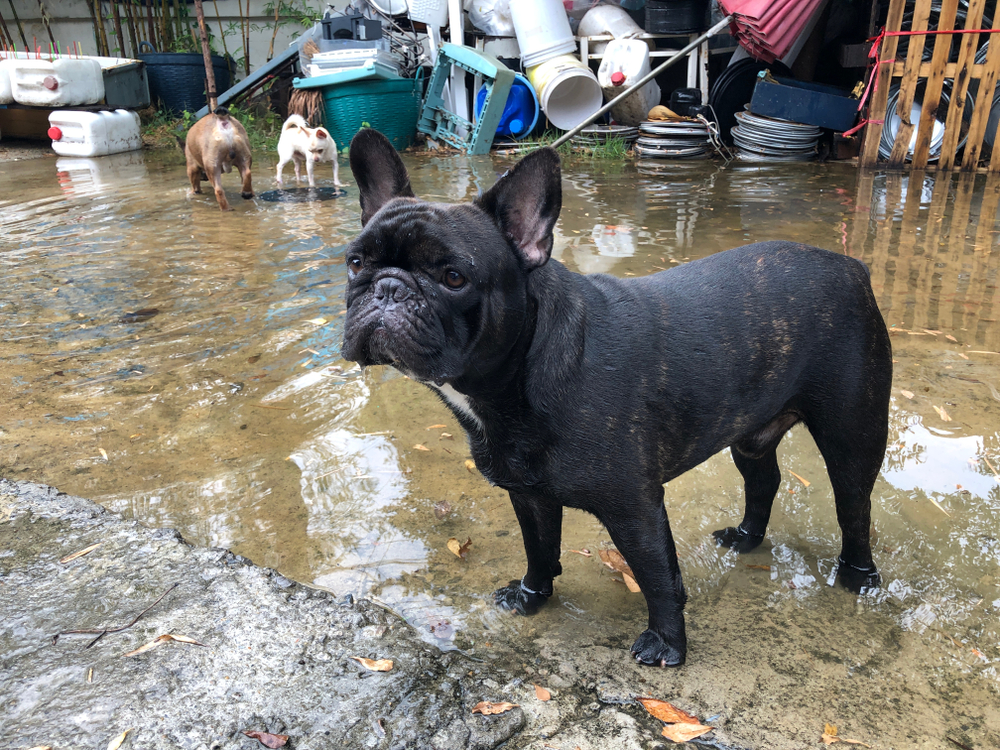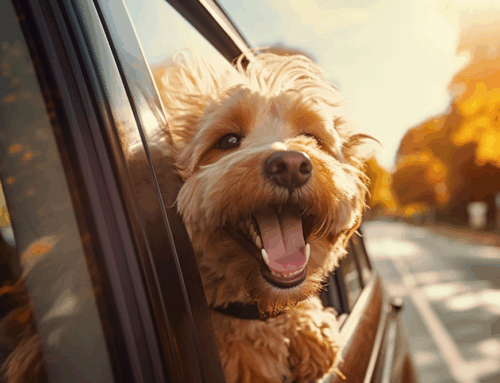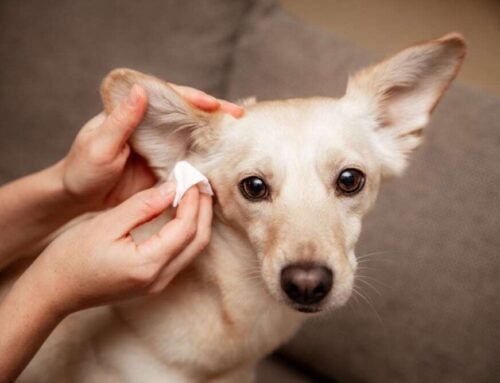Hurricanes are a common occurrence in Florida, and while you can’t prevent these storms, you can prepare for them. Ensure you make preparations for your pet as well. Our Animal Medical Hospital of Naples team wants to help by providing tips to ensure your pet remains safe in case your home is affected.
#1: Properly identify your pet
Pets can easily be lost during the commotion and confusion caused by a hurricane, and if they aren’t properly identified, you may never see them again. Steps to increase your chances of being reunited with your pet include:
- Microchipping your pet — Microchipping your pet is the best way to permanently identify them. This simple procedure can easily be performed at your pet’s next wellness visit, and the implanted chip will link them to you if they go missing. When your pet is found, a veterinarian or shelter worker will scan their neck, and a unique identification number will be displayed. As long as you keep your contact information updated in the microchip registry, you will be informed when your pet is found.
- Ensuring your pet wears identification tags — Your pet also should always wear a properly fitted collar that has identification tags displaying your current contact information.
- Taking a picture of your pet — Keep a current photo of your pet so you can post the picture in the neighborhood if they go missing.
#2: Keep your pet’s preventive care up to date
Hurricanes bring heavy rains and flooding, and these conditions can make it easier for diseases to spread. Standing water allows mosquitoes to flourish, and their bites can transmit heartworms from one animal to another, causing significant damage to your pet’s heart and lungs. In addition, these conditions can lead to leptospirosis infections. Pets contract this bacterial disease by swimming in or drinking water contaminated with urine from infected animals. Ensure your pet’s vaccines and parasite prevention medications are up to date to protect them from preventable diseases.
#3: Ensure your pet has shelter
If your home isn’t safe for you, then it isn’t safe for your pet. Never leave them behind during a hurricane. Research locations in advance to ensure you have somewhere you can take your pet in case you have to evacuate. Considerations include:
- Friends and family members — Ask your friends and relatives if they would be willing to let your pet stay in their home.
- Hotels and motels — Research locations outside your immediate area to identify hotels and motels that accept pets. Some places have breed or size restrictions, so ensure your pet will be welcome.
- Boarding facilities — Ask your veterinary professional about reputable boarding facilities if other locations aren’t an option.
#4: Prepare emergency supplies for your pet
Whether you are forced to evacuate or you are stuck at home without electricity, you should stock supplies for your pet to ensure they have what they need if you can’t easily get to a store. Items to keep on hand include:
- Food and water — Stock enough pet food and water to last for three to seven days.
- Bowls — Ensure you have food and water bowls in case you must evacuate.
- Pet first aid kit — Pack a pet first aid kit in case your pet experiences a veterinary emergency. Ensure you have numbers for Animal Medical Hospital of Naples and Animal Poison Control.
- Extra collar and leash — Ensure you have a way to restrain your pet if they lose their collar or leash.
- Medications — Have at least a month’s supply of your pet’s medications.
- Litter — For cats, ensure you have a week’s worth of litter and a litter box.
- Cleaning supplies — Keep paper towels and disinfectants on hand to make cleanup easier.
#5: Ensure your pet is not left behind

If you aren’t at home when a hurricane hits, take steps to ensure your pet isn’t left behind. Tips include:
- Designating a caregiver — Ask a neighbor to be responsible for your pet if you aren’t home when an emergency occurs. Ensure they have keys to your home so they can rescue your pet.
- Displaying a rescue alert sticker — Place a rescue alert sticker on or near your front door to alert rescue workers that a pet is in the home. The sticker provides information about how many pets are in the home, what types of pets, and the name and number of your veterinarian.
#6: Acclimate your pet to their carrier
For cats and small dogs, the safest place during an emergency evacuation is their carrier. Get your pet used to spending time in their carrier so they aren’t distressed by the situation. Tips include:
- Leaving the carrier out — Open the carrier and leave it in an area where your pet frequently rests. This will allow them to explore the carrier on their own terms, and many pets eventually enjoy resting inside the carrier.
- Practicing an evacuation — Place your pet inside and let them get used to being carried in their carrier. Offer treats and praise during every practice session.
Making preparations for your pet before a hurricane strikes is the best way to ensure they stay safe in the event of an emergency. If you would like to have your pet microchipped, contact our team at Animal Medical Hospital of Naples so we can ensure they are properly identified.






Leave A Comment